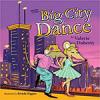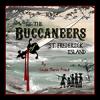The Authors Show®
Publishing Industry Podcasting Pioneer, since 2005
- Home
- About our show
- Great Writers Magazine
- Book Cover Contest
- FAQs
-
Featured Authors
- A.L. Tayler
- Andre Mckelvin
- Arthur Lih
- Barbara Holstein
- Bernadette Inclan
- Christine Tate
- Don Baldwin
- Donna Louis
- Douglas Norman
- Eric Madeen
- Grace Blair
- Ila France Porcher
- J.D. Mitschke
- James D Paulk
- Jan Banaszek
- Jeff Richards
- Jeffrey Marshall
- Jody Sharpe
- Jody Sharpe
- John Crippen
- Joni Marie Iraci
- Joseph M Lenard
- Keith Thorn
- Lauren Speeth
- Linda Maria Frank
- Lisa Norman M.D.
- Marie Lisette Rimer
- Nicholas Anderson
- Penny Orloff
- Penny Peyser
- Peter Ticktin
- Phyllis Strupp
- Randy Rauh
- Richard H Ballo
- S.G. Blaise
- Shawn Lee
- Steve Bassett
- Steve Bassett
- Valerie Doherty
- The Store
- Publishers
- Give a Book, Get a Smile
- Spotlight
- More...










































